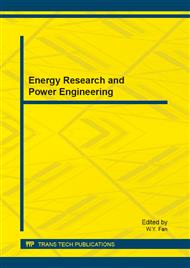[1]
Ji Xinjie, Li Shengjin, Fang Zongde. A research on the parameters matching for the powertrain of single-axle parallel hev. Automotive Engineering, 2011, 33(3): 188-193.
DOI: 10.1109/icsps.2010.5555287
Google Scholar
[2]
Peng Tao, Chen Quanshi, Tian Guangyu, Li Haichen. Parameter matching of parallel hybrid electric vehicle powertrain. Chinese Journal of Mechanical Engineering, 2003, 39(2): 69-73.
DOI: 10.3901/jme.2003.02.069
Google Scholar
[3]
Zhou Yongqin, Han Chunli, Wang Xudong, Yu Tengwei. Research on power train source matching for single-axle phev. Vehicle Power and Propulsion Conference (VPPC). United States: Inst. of Elec. and Elec. Eng. Computer Society, 2008(9).
DOI: 10.1109/vppc.2008.4677452
Google Scholar
[4]
Li Zhongli, Wang Ximing, Gao Jianping, Guo Zhijun, Zhu Guanghai. Matching method based on driving cycle of powertrain for hybrid electric vehicle. Journal of Henan University of Science & Technology(Natural Science), 2010, 31(5): 24-29.
Google Scholar
[5]
Zeng Xiaohua, Wang Qingnian, Wang Weihua, Chu Liang. Orthogonal optimization design for hybrid electric vehicle. Transactions of the Chinese Society for Agricultural Machinery, 2006, 37(5): 26-28.
Google Scholar
[6]
Zhao Han, Dai Kangwei, Zhang Bingli, Jiang Hao. Study on power system parameter optimization for sheb based on orthogonal experiment method. Journal of Hefei University of Technology(Natural Science), 2008, 31(3): 323-326.
Google Scholar
[7]
Wang B H, Jin Y, Luo Y G. Parametric optimization of EQ6110HEV hybrid electric bus based on orthogonal experiment design. International Journal of Automotive Technology, 2010, 11(1): 119−125.
DOI: 10.1007/s12239-010-0016-2
Google Scholar
[8]
Wu Yanping, Liu Xudong, Duan Jianmin. Optimum design of hybrid electric vehicle by hybrid genetic algorithm. Machinery Design & Manufacture, 2008(9): 22-24.
DOI: 10.1109/ical.2008.4636199
Google Scholar
[9]
Zhu Zhengli, Zhang Jianwu, Yin Chengliang. Optimization approach for hybrid electric vehicle powertrain design. Chinese Journal of Mechanical Engineering(English Language Edition). 2005(18): 30-36.
DOI: 10.3901/cjme.2005.01.030
Google Scholar
[10]
Gao W, Porandla S K. Design optimization of a parallel hybrid electric powertrain. vppc. piscataway, NJ, USA: IEEE, 2006(9).
Google Scholar
[11]
Chen Yong, Chen Xiaokai, Lin Yi. Parameters matching and optimization of parallel hybrid electric vehicle powertrain. High Technology Letters (English Language Edition), 2010, 16(1): 34-38.
Google Scholar
[12]
Standardization Administration of the People's Republic of China. Test methods for energy consumption of heavy-duty hybrid electric vehicles, GB/T19754-(2005).
Google Scholar
[13]
Zeng Xiaohua. Study on mechanism of energy saving and method of parameter design for hybrid electric bus. Ph D Thesis. Jilin: University of Jin Lin, (2006).
Google Scholar


